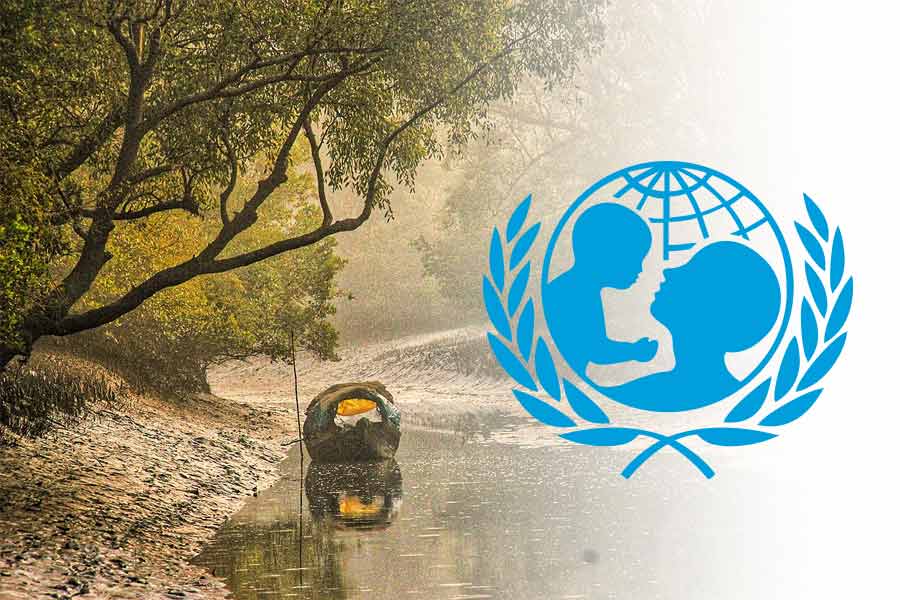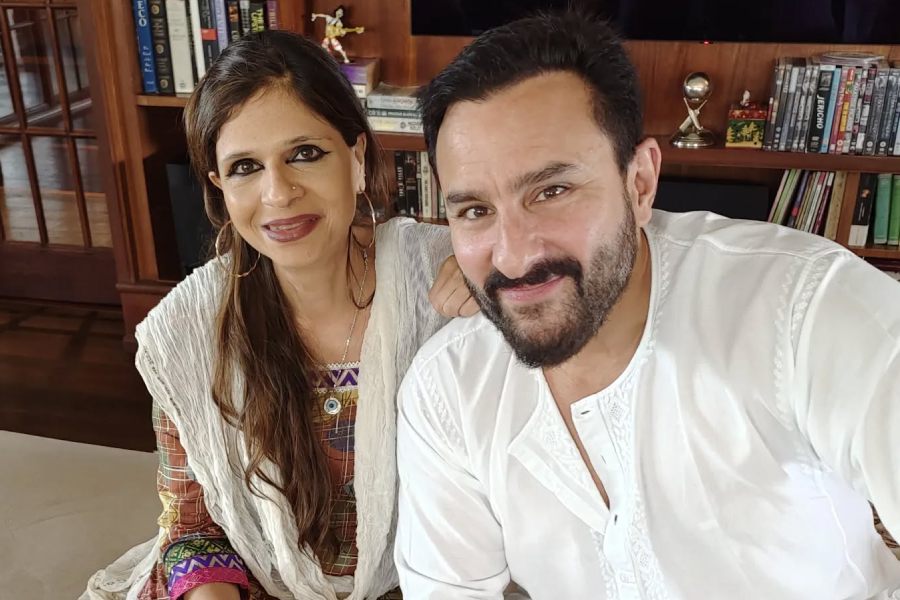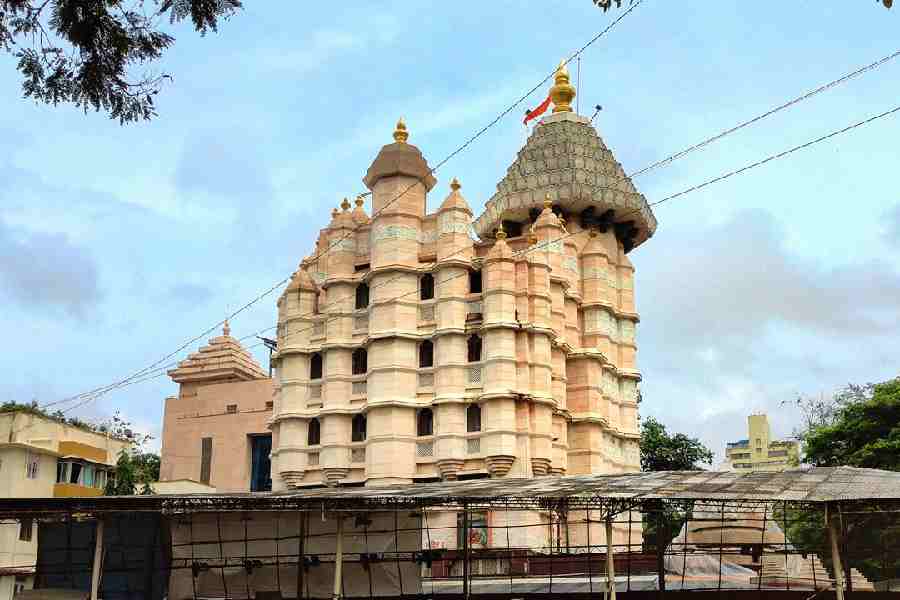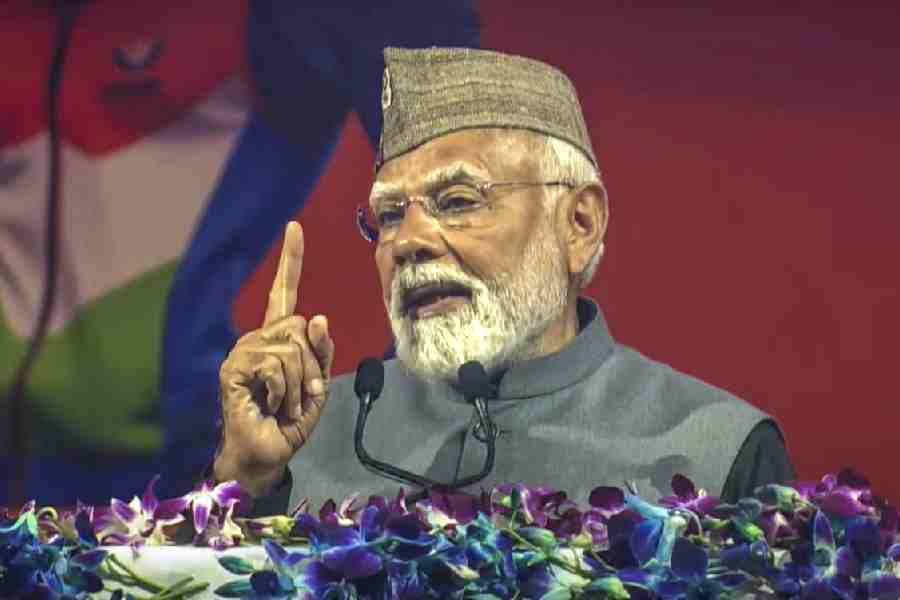Family members of Hitesh Mondal, an 11-month-old child, brought him to a health camp in Lahiripur gram panchayat office in Sundarbans as he had difficulty in sleeping properly due to a "fragile neck" and got advice from doctors there for future course of treatment.
Juthika Mondal, aged 19, who had a history of several premature deliveries, had attended the camp four times since November 25 last year, during another pregnancy.
Hitesh and Juthika are among hundreds of children and women, who have been getting benefited from local-level health camps run by UNICEF in remote areas of Sundarbans in West Bengal.
Parents of many children and women in the island region find these remote health camps beneficial as the absence of male members in families due to migration for better livelihood opportunities and lack of transport facilities to visit distant hospitals forced mothers in Sundarbans to ignore regular health check-ups of their wards, UNICEF Programme Specialist, Risk and Resilience Omkar Oniel Khare said.
A visiting press party to one of the 163 UNICEF camps in the riverine area found that these localised health facilities have contributed to counter malnourishment in several children in the area.
Hitesh's parents got initial advice from the health camp and he was referred to a tertiary care hospital for further evaluation and treatment.
“The child has had several health issues since birth. He has a fragile neck and is not able to sleep sideways. We are trying to get him cured taking the help of camp doctors," said Usha Rani Mondal, an ASHA worker from the region.
Hitesh was one of many children who have been getting appropriate medical advice from these health facilities and some of them have been provided with free nutritional supplements and vitamins, the UNICEF official said.
Like Hitesh, children suffering from fever, measles and jaundice got checked by doctors in the camps and received treatment as necessary, another official said.
"Had these medical camps not been organised, the condition of these children would have to be more serious. Infants, who have missed a few doses of routine immunization for one reason or another, also get vaccinated in the camps organised close to their residences," the ASHA worker said. These camps - spread across Goosaba, Patharpratima and Namkhana blocks in the Indian part of Sundarbans - have been organised after cyclone 'Remal' made landfall in May last year, the UNICEF official said.
The project is slated to end this month, he said. The health camps, organised in disaster-impacted locations of Sundarbans, also provided opportunities for pregnant women to seek advice and guidance from registered doctors and get check-ups done at their locality.
In the past one month, 45 deliveries took place at a rural hospital in Gosaba and not a single case of miscarriage was reported, a health official said.
Earlier, many childbirths used to take place at residences, and people faced severe difficulties during calamities like cyclone 'Remal' or 'Amphan'.
"Now, with the holding of such camps, people are becoming more aware of their health and informing ASHA workers about conditions of women so that they can be rushed to medical facilities with infrastructural support," Mondal said.
Financial difficulties prevented many women from accessing distant government and private health facilities for regular check-ups required for high-risk pregnancies, she said.
The elderly people living on the islands, who often fail to visit distant government hospitals due to high transport costs and lack of manpower, also benefited from these medical camps, Khare said.
The medical camps, organised by UNICEF, helped them find a doctor, and appropriate treatment, near their homes with free medicines, a rare experience for many of these elderly beneficiaries.
Sixty-year-old Renuka Mondal, whose husband had died in a tiger attack nine years ago, attended the health camp at Lahiripur gram panchayat.
Due to financial and social challenges, she and many others usually rely on rural quacks for healthcare but their medicines could not provide any permanent solution.
However, the medicines provided by the doctors at the health camp have significantly alleviated her knee pain, offering much-needed relief, she claimed.
Dr Rishi Majumdar, who was attending patients at the Lahiripur camp, said many of them have been found to suffer from chronic as well as lifestyle diseases.
Except for the headline, this story has not been edited by The Telegraph Online staff and has been published from a syndicated feed.











